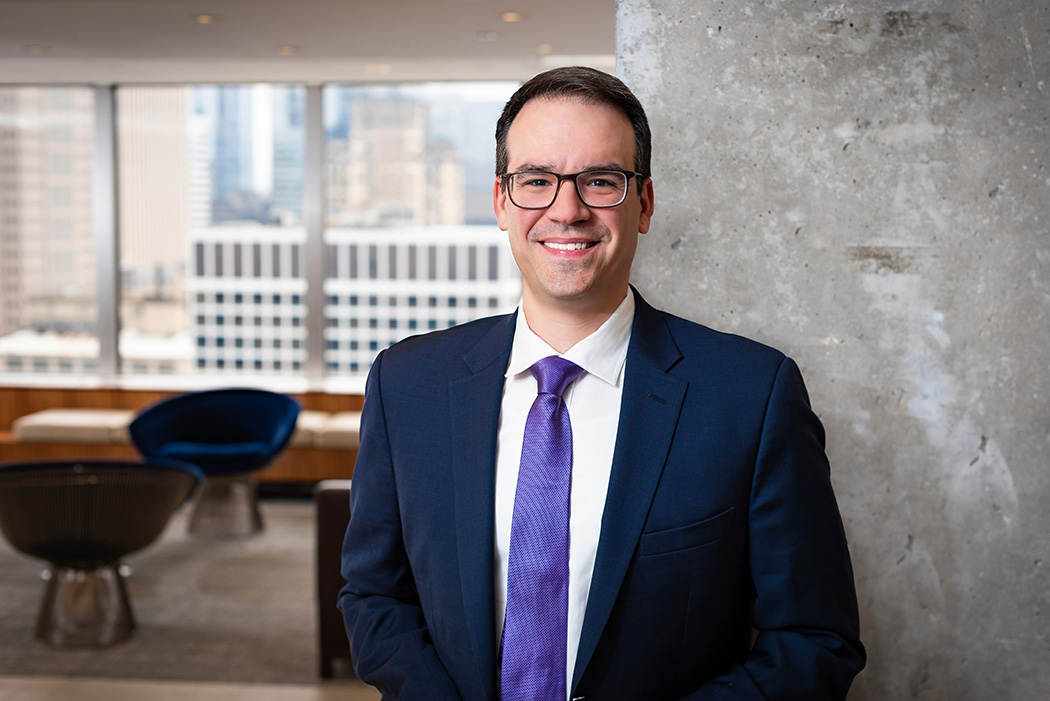Supreme Court Grants Certiorari on Appointment of PTAB Judges
- October 13, 2020 snippets Alert
- Snippets
Practices & Technologies
Biotechnology & Pharmaceuticals Cannabis Chemical Opinions & Counseling Electrical Litigation & Appeals Mechanical & Materials Medical Device & Diagnostics Patent Portfolio Management Patent Prosecution PTAB Post-Grant Proceedings Software & Computing Emerging Companies & Entrepreneurs Networking & Telecommunications Trademark Trade SecretsToday, the Supreme Court granted petitions for a writ of certiorari to review the Federal Circuit’s decision in Arthrex, Inc. v. Smith & Nephew, Inc. Last Halloween, a Federal Circuit panel held in Arthrex that the way the U.S. Patent and Trademark Office appointed administrative patent judges (APJs) to the Patent Trial and Appeal Board violated the Appointments Clause of the Constitution (Art. II, § 2, Cl. 2). To remedy the violation, the court severed a portion of the America Invents Act restricting removal of the APJs and vacated and remanded the PTAB’s judgment for a new hearing. The Federal Circuit denied rehearing, with four judges dissenting.
The Supreme Court has granted certiorari on two of the questions that the government argued were common questions across the petitions filed by the petitioner (Smith & Nephew), patent owner (Arthrex), and government:
-
- Whether, for purposes of the Appointments Clause, U.S. Const. Art. II, § 2, Cl. 2, administrative patent judges of the U.S. Patent and Trademark Office are principal officers who must be appointed by the President with the Senate’s advice and consent, or “inferior Officers” whose appointment Congress has permissibly vested in a department head.
- Whether, if administrative patent judges are principal officers, the court of appeals properly cured any Appointments Clause defect in the current statutory scheme prospectively by severing the application of 5 U.S.C. 7513(a) to those judges.
Notably, the Supreme Court did not grant certiorari on the government’s third common question, which involved waiver/forfeiture of an Appointments Clause challenge.
Merits briefing from Smith & Nephew, Arthrex, and the government will begin on the two granted questions. There will likely be many amicus briefs too. The Supreme Court has scheduled one hour of oral argument divided between Smith & Nephew, Arthrex, and the government. A decision in the case is likely expected no later than June 2021.
MBHB will monitor developments in Arthrex. In the meantime, litigants should carefully consider the potential impact of the Supreme Court’s decision in Arthrex on their PTAB proceedings.
James L. Lovsin, a partner with McDonnell Boehnen Hulbert & Berghoff LLP, serves as Chair of the firm’s PTAB Trials Practice Group. Mr. Lovsin concentrates his practice on intellectual property litigation and appeals, and patent and trademark procurement and counseling. lovsin@mbhb.com
Grantland G. Drutchas, founder and former managing partner of McDonnell Boehnen Hulbert & Berghoff LLP, has more than 20 years of experience in the practice of intellectual property law, with a particular emphasis on litigation, licensing, and client counseling. Mr. Drutchas serves as Chair of the firm’s PTAB Trials Practice Group, and Chair of the firm’s Licensing Practice Group. drutchas@mbhb.com
© 2020 McDonnell Boehnen Hulbert & Berghoff LLP
snippets is a trademark of McDonnell Boehnen Hulbert & Berghoff LLP. All rights reserved. The information contained in this newsletter reflects the understanding and opinions of the author(s) and is provided to you for informational purposes only. It is not intended to and does not represent legal advice. MBHB LLP does not intend to create an attorney–client relationship by providing this information to you. The information in this publication is not a substitute for obtaining legal advice from an attorney licensed in your particular state. snippets may be considered attorney advertising in some states.

